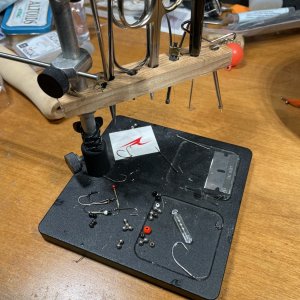I’ll start with my story. I picked up hunting waterfowl at the ripe age of 45 and this is my second season of hunting solo on public land with no dog. Water is usually knee deep or less.
If I were to give advice to a person wanting to dive into this sport of solo hike in waterfowl hunting,here are a few things i would say.
1
Have someone take you out that has all the gear, to see if it’s something you want to obsess over.
2
If your all in like I was, it’s time to spend a lot of money
3
A dozen good decoys is a great place to start.
4
You will most likely need some good waders, besides the simms G4, I did that last year and you’ll just destroy your good fishing waders. It’s best to have a pair specifically set aside for this.
5
You’ll need a duck call and have to figure out how to use it.
6
Camouflage is huge, those ducks can pick you out from a long ways away! Especially in the late season when they get shot at every time they land. I bring a solo blind with me that I brush up with my surroundings.
7
You will need a way to haul all of your new goodies, whether it be a backpack, dolly or a sled. Might be all three!
8
now that you have gathered all of these glorious goodies you’ll need somewhere to go. The internet’s a great place to look and so is the DFWL.
9
Always tell someone where your going and be safe!
If I were to give advice to a person wanting to dive into this sport of solo hike in waterfowl hunting,here are a few things i would say.
1
Have someone take you out that has all the gear, to see if it’s something you want to obsess over.
2
If your all in like I was, it’s time to spend a lot of money
3
A dozen good decoys is a great place to start.
4
You will most likely need some good waders, besides the simms G4, I did that last year and you’ll just destroy your good fishing waders. It’s best to have a pair specifically set aside for this.
5
You’ll need a duck call and have to figure out how to use it.
6
Camouflage is huge, those ducks can pick you out from a long ways away! Especially in the late season when they get shot at every time they land. I bring a solo blind with me that I brush up with my surroundings.
7
You will need a way to haul all of your new goodies, whether it be a backpack, dolly or a sled. Might be all three!
8
now that you have gathered all of these glorious goodies you’ll need somewhere to go. The internet’s a great place to look and so is the DFWL.
9
Always tell someone where your going and be safe!














